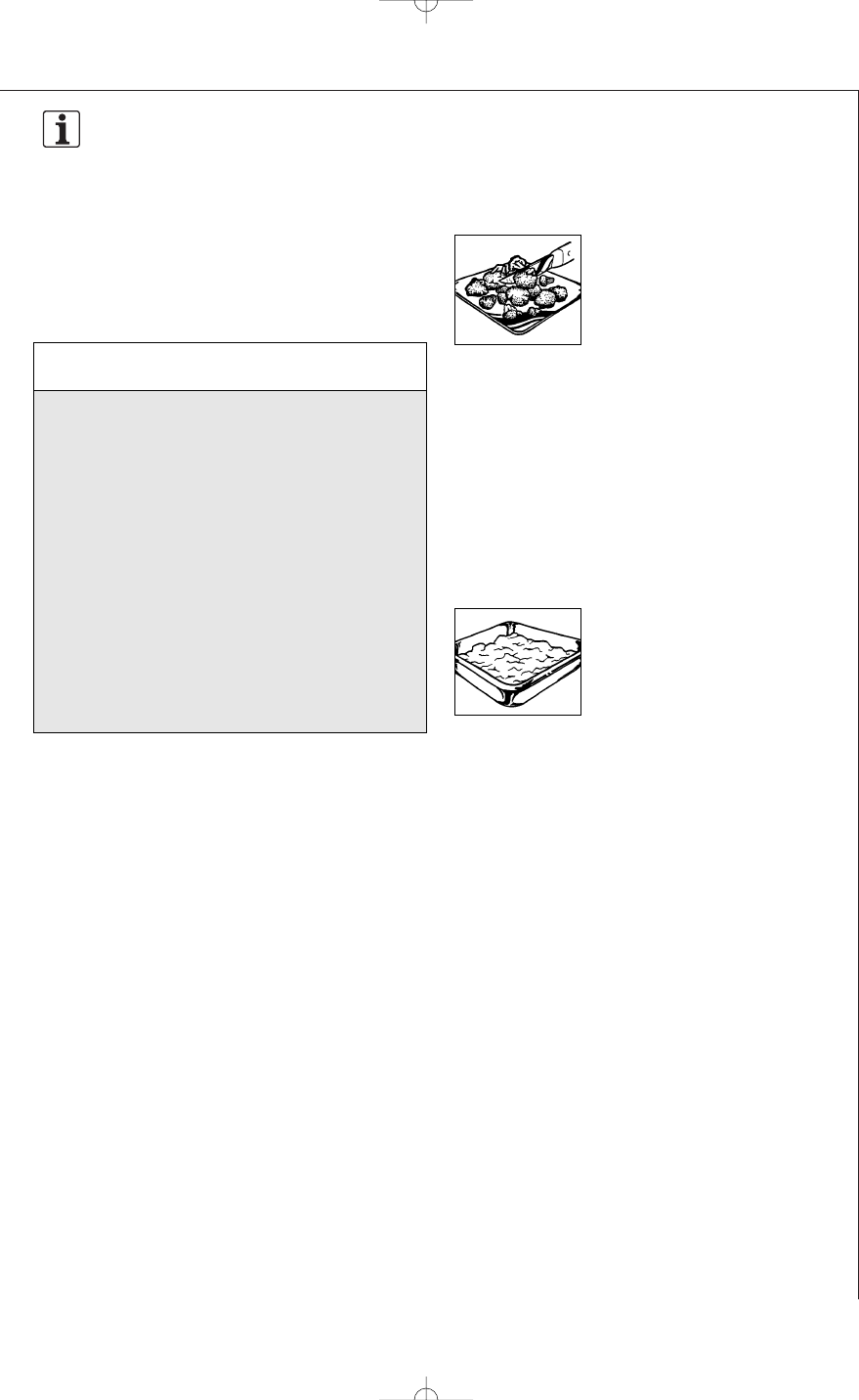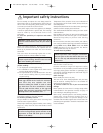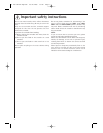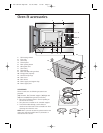
11
Tips & advice
Blanching vegetables
Before freezing vegetables, they should be blanched.
This preserves the quality and
flavour at their best. Method: wash
and chop the vegetables. Put 250g
of vegetables in a dish with 275 ml
water and cover. Heat for 3-5
minutes. After blanching, immerse
immediately in cold water to prevent further cooking
and then allow to drain. Pack vegetables in an airtight
container and freeze.
Preserving fruit and vegetables
Using the microwave for preserving is quick and easy.
There are preserving jars, rubber vacuum seals and
suitable seals made of plastic available specially made
for microwaves. The manufacturers will supply precise
instructions for use.
Large & small quantities
Microwave times are directly
dependent upon the amount of
food which you would like to thaw,
heat or cook. This means that small
portions cook more quickly than
larger ones. As a rule of thumb:
TWICE THE AMOUNT = ALMOST TWICE THE TIME
HALF THE AMOUNT = HALF THE TIME
Deep & shallow containers
Both containers have the same capacity, but the
cooking time is longer for the deeper one. You should
therefore choose as flat a container as possible with a
large surface area. Only use deep containers for dishes
where there is a danger of overcooking, e.g. for
noodles, rice, milk etc.
Round & oval containers
Food cooks more evenly in round or oval containers
than in containers with corners, since the microwave
energy concentrates in the corners and the food in
these areas could become overcooked.
Addition of water
Vegetables and other foods with a high water content
can be cooked in their own juice or with the addition
of a little water. This ensures that many vitamins and
minerals are preserved.
Food in skin or shells
Foods such as sausages, chickens, chicken legs, baked
potatoes, tomatoes, apples, egg yolks or such like
should be pricked or pierced with a fork or small
wooden skewer. This will enable the steam which forms
to dissipate without splitting the skin or shell.
Fatty foods
Fatty meat and layers of fat cook better than lean
portions of meat. Before cooking, cover the fatty
portions with a piece of aluminium foil or place the
food with the fat side down.
Using a food thermometer to
determine cooking time
The internal temperature of food and drink can be
ascertained with a food thermometer. The most
important temperatures are specified in the
temperature table.
Heating drinks
(Coffee, Water, Tea, etc.)
Heating Milk
Heating soup
Heating stew
Poultry
Lamb
Pink
Well done
Roast beef
Rare
Medium
Well done
Pork, Veal
Drink / Food Internal Internal temp.
temperature after 10 - 15 mins
once cooked standing time
65-75
o
C
60-65
o
C
75-80
o
C
75-80
o
C
80-85
o
C
70
o
C
75-80
o
C
50-55
o
C
60-65
o
C
75-80
o
C
80-85
o
C
85-90
o
C
70-75
o
C
80-85
o
C
55-60
o
C
65-70
o
C
80-85
o
C
80-85
o
C
2. AG-72D-UK ENGLISH 22/11/2005 13:41 Page 11


















